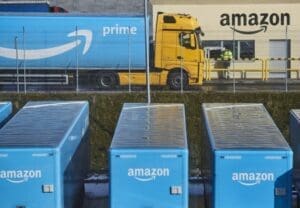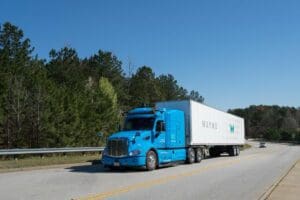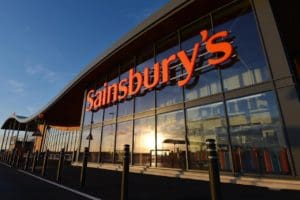 It’s an interesting and unsettling time to be a Boston sports fan. As I’ve noted on here a number of times, we are living in an era of winning that is unprecedented. Every Big 4 team has won at least 1 championship over the last 20 years and the cumulative sits 12. And that number could be even higher when you factor in those near misses of the 2007, 2010, and 2017 Patriots, 2012-2013 and 2018-2019 Bruins, and 2009-2010 Celtics. However, we are now in a state of flux. Sure, the Bruins have the best record in the NHL and look primed for another Stanley Cup run and the Celtics are pushing for the number 2 seed in the East with a team chemistry that has never been better. The Patriots and Red Sox, however, are another story. No one is certain where Tom Brady will play next year; and even if he ends up back in new England, will they have the weapons around him to make a difference? And the Red Sox look like a mess as Spring Training begins. They have traded the second-best player in all of baseball (with a rather poor return) in Mookie Betts to the Dodgers, Chris Sale may need surgery, and let’s not forget they let their manager go amid a cheating scandal. It is not the normal spring for Boston fans around here. But who knows, maybe everything will work out in the end; it usually does. And now on to this week’s logistics news.
It’s an interesting and unsettling time to be a Boston sports fan. As I’ve noted on here a number of times, we are living in an era of winning that is unprecedented. Every Big 4 team has won at least 1 championship over the last 20 years and the cumulative sits 12. And that number could be even higher when you factor in those near misses of the 2007, 2010, and 2017 Patriots, 2012-2013 and 2018-2019 Bruins, and 2009-2010 Celtics. However, we are now in a state of flux. Sure, the Bruins have the best record in the NHL and look primed for another Stanley Cup run and the Celtics are pushing for the number 2 seed in the East with a team chemistry that has never been better. The Patriots and Red Sox, however, are another story. No one is certain where Tom Brady will play next year; and even if he ends up back in new England, will they have the weapons around him to make a difference? And the Red Sox look like a mess as Spring Training begins. They have traded the second-best player in all of baseball (with a rather poor return) in Mookie Betts to the Dodgers, Chris Sale may need surgery, and let’s not forget they let their manager go amid a cheating scandal. It is not the normal spring for Boston fans around here. But who knows, maybe everything will work out in the end; it usually does. And now on to this week’s logistics news.
- Amazon in the news:
- Walmart working on an Amazon Prime competitor called Walmart+
- Waymo launches delivery service after raising $2.25 billion
- Coronavirus slashing US port volumes
- Federal circuit upholds Trump’s 25 percent steel tariff
- Sainsbury’s offers refill service on cleaning products
- C&S Wholesale Grocers taps Wabash for new trucking innovation
 Coronavirus continues to make an impact on the global supply chain and not even Amazon is immune to its reach. As more consumers turn to e-commerce to avoid going to brick and mortar stores in response to the outbreak, Amazon has said that its Prime Now and Amazon Fresh services have been inundated and overwhelmed. As a result, the company is warning that both services will have limited availability and orders will likely be delayed. Amazon was quick to point out that the virus has not limited the number of drivers making deliveries or impacted the number of trucks on the road. Instead, the surge in demand is straining its delivery capacity and available resources.
Coronavirus continues to make an impact on the global supply chain and not even Amazon is immune to its reach. As more consumers turn to e-commerce to avoid going to brick and mortar stores in response to the outbreak, Amazon has said that its Prime Now and Amazon Fresh services have been inundated and overwhelmed. As a result, the company is warning that both services will have limited availability and orders will likely be delayed. Amazon was quick to point out that the virus has not limited the number of drivers making deliveries or impacted the number of trucks on the road. Instead, the surge in demand is straining its delivery capacity and available resources.
In an unrelated move, Amazon has slowly and quietly started opening a series of small warehouses closer to large US cities to cut down on the time it takes to fulfill orders. Earlier this week, the company announced it is updating its same-day delivery program in Phoenix, AZ, Philadelphia, PA, Dallas, TX, and Orlando, FL. According to Jon Alexander, Amazon’s director of delivery experience, “the same-day offer will now guarantee delivery of more than 100,000 products, from phone chargers to dog food, in as little as five hours, from a new warehouse close to each launch city.” While the number of products available for same-day delivery is impressive, it pales in comparison to what is offered through Amazon Prime: more than 100 million items for two-day US delivery. With the launch of the updated warehouse program, Amazon will guarantee packages arrive by several set times daily.
 Not to be outdone, Walmart is quietly working on a competitive response to Amazon Prime. The new program will be called Walmart+ and will be the company’s own paid membership service. Sources indicate that Walmart could start testing Walmart+ as early as next month. The program will be a re-brand of Walmart’s Delivery Unlimited service, which charges customers $98 a year for unlimited, same-day delivery of fresh groceries. However, the company is considering adding other perks to help it differentiate itself, such as text message ordering, discounts on prescription drugs at Walmart pharmacies, discounts on fuel at Walmart gas stations, and a Scan & Go service that would allow shoppers to check out in Walmart stores without waiting in line.
Not to be outdone, Walmart is quietly working on a competitive response to Amazon Prime. The new program will be called Walmart+ and will be the company’s own paid membership service. Sources indicate that Walmart could start testing Walmart+ as early as next month. The program will be a re-brand of Walmart’s Delivery Unlimited service, which charges customers $98 a year for unlimited, same-day delivery of fresh groceries. However, the company is considering adding other perks to help it differentiate itself, such as text message ordering, discounts on prescription drugs at Walmart pharmacies, discounts on fuel at Walmart gas stations, and a Scan & Go service that would allow shoppers to check out in Walmart stores without waiting in line.
 After raising $2.25 billion from a group of outside investors, Waymo is set to officially launch Waymo Via. The program will deliver goods using its fleet of autonomous vehicles as well as self-driving class 8 trucks. Waymo CEO John Krafcik called it a natural extension of the autonomous drive technology the company has been testing outside of Phoenix. Waymo is opening up routes along the I-10 corridor connecting Arizona, New Mexico, and Texas with its class 8 trucks. Additionally, the company has a fleet of modified Chrysler Pacifica self-driving vehicles which can be used for home delivery. Since its founding, Waymo’s autonomous vehicle technology has logged over 20 million miles of real world driving and over 10 billion miles of simulated driving.
After raising $2.25 billion from a group of outside investors, Waymo is set to officially launch Waymo Via. The program will deliver goods using its fleet of autonomous vehicles as well as self-driving class 8 trucks. Waymo CEO John Krafcik called it a natural extension of the autonomous drive technology the company has been testing outside of Phoenix. Waymo is opening up routes along the I-10 corridor connecting Arizona, New Mexico, and Texas with its class 8 trucks. Additionally, the company has a fleet of modified Chrysler Pacifica self-driving vehicles which can be used for home delivery. Since its founding, Waymo’s autonomous vehicle technology has logged over 20 million miles of real world driving and over 10 billion miles of simulated driving.
 The American Association of Port Authorities (AAPA) said cargo volumes at US ports in the first quarter could be down by 20 percent or more from 2019 levels because of the supply chain disruption caused by the coronavirus. The US Coast Guard issued a Marine Safety Bulletin that stated in part that vessels with crew members who had been to mainland China within the previous 14 days, with no sick crew members, would be permitted to enter and conduct normal operations, but crew members would be required to remain onboard with very limited exceptions. If a crew member who had been to mainland China within the previous 14 days was brought on board a vessel in transit to the United States, the master was required to immediately notify the Coast Guard. The AAPA added “for seaborne trade and travel, it’s both a blessing and a curse that there’s a two-week latency period for coronavirus symptoms. The lag time gives our ports, Coast Guard, Customs agents and health officials time to prepare for screening and, if needed, quarantine or rerouting of crew members or travelers thought to be infected.”
The American Association of Port Authorities (AAPA) said cargo volumes at US ports in the first quarter could be down by 20 percent or more from 2019 levels because of the supply chain disruption caused by the coronavirus. The US Coast Guard issued a Marine Safety Bulletin that stated in part that vessels with crew members who had been to mainland China within the previous 14 days, with no sick crew members, would be permitted to enter and conduct normal operations, but crew members would be required to remain onboard with very limited exceptions. If a crew member who had been to mainland China within the previous 14 days was brought on board a vessel in transit to the United States, the master was required to immediately notify the Coast Guard. The AAPA added “for seaborne trade and travel, it’s both a blessing and a curse that there’s a two-week latency period for coronavirus symptoms. The lag time gives our ports, Coast Guard, Customs agents and health officials time to prepare for screening and, if needed, quarantine or rerouting of crew members or travelers thought to be infected.”
 Despite a challenge from the American Institute for International Steel claiming the president overstepped his authority, the Federal Circuit upheld President Trump’s steel tariffs. The Federal Circuit upheld the president’s tariff authority under the Trade Expansion Act of 1962. The act allows the president to adjust imports only to avert a threat to national security. The act doesn’t unconstitutionally delegate legislative authority to the president, the Federal Circuit said in a non-precedential opinion. With the decision, it becomes more likely that the group will once again ask the Supreme Court to take up the case, which now seems like a more likely outcome.
Despite a challenge from the American Institute for International Steel claiming the president overstepped his authority, the Federal Circuit upheld President Trump’s steel tariffs. The Federal Circuit upheld the president’s tariff authority under the Trade Expansion Act of 1962. The act allows the president to adjust imports only to avert a threat to national security. The act doesn’t unconstitutionally delegate legislative authority to the president, the Federal Circuit said in a non-precedential opinion. With the decision, it becomes more likely that the group will once again ask the Supreme Court to take up the case, which now seems like a more likely outcome.
 Limiting plastic waste for customers continues to be a big move for retailers. And now, Sainsbury’s is looking at a new and innovative way to become a bit more sustainable. The company has launched a dish washing and laundry detergent refill service as part of a trial to offer customers an alternative to plastic usage. The grocer has offered the trial at its Harringay superstore, where customers can refill selected Ecover cleaning products using bottles that can be used up to 50 times. Sainsbury’s said the refill trial will be extended to a further 19 stores later this year and aims to save over a million tons of plastic per year. The initiative comes after the grocer recently pledged to become net zero across its operations by 2040 by taking measures across its operations in recycling, plastic packaging, carbon reduction and biodiversity.
Limiting plastic waste for customers continues to be a big move for retailers. And now, Sainsbury’s is looking at a new and innovative way to become a bit more sustainable. The company has launched a dish washing and laundry detergent refill service as part of a trial to offer customers an alternative to plastic usage. The grocer has offered the trial at its Harringay superstore, where customers can refill selected Ecover cleaning products using bottles that can be used up to 50 times. Sainsbury’s said the refill trial will be extended to a further 19 stores later this year and aims to save over a million tons of plastic per year. The initiative comes after the grocer recently pledged to become net zero across its operations by 2040 by taking measures across its operations in recycling, plastic packaging, carbon reduction and biodiversity.
And finally, on another sustainability note, C&S Wholesale Grocers has teamed up with Wabash National to showcase an innovative, zero-emissions, 48-foot refrigerated trailer. According to Wabash, the new MSC reefer sets new standards in efficiency with optimized thermal performance, maximized payload capacity, corrosion resistance, and the industry’s highest standard floor rating. The MSC reefer was designed and constructed with advanced MSC technology and is up to 30 percent more thermally efficient than a conventional refrigerated trailer, reducing fleets’ operating costs by running fewer hours, using less fuel, and lasting longer. According to Robert Lane, Wabash National’s Vice President of Product Innovations, “this is the first time a major box innovation has been coupled with a major transport refrigeration unit (TRU) innovation that results in breakthrough customer value in a sustainable format.”
That’s all the logistics news for this week. In another bit of news, my wife’s cousin, Alex Schiff, a Portland, OR-based multi-instrumentalist who performs as Blue Canopy, has just released his debut EP, Mild Anxiety. This week’s song comes from his debut: 656. Enjoy!
















